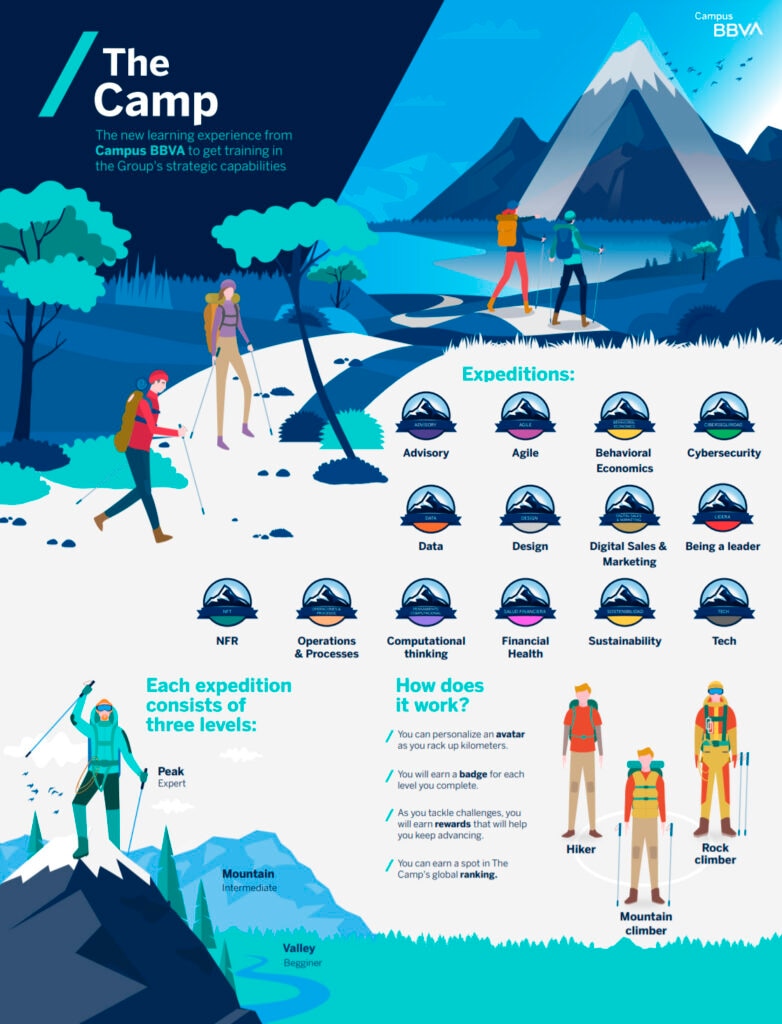
From U.K.-based Standard Chartered to Germany’s Deutsche Bank, banks around the world are adapting to the post-COVID world with fewer branches. In separate announcements only a few days a part, two of the globe’s bigger banking presences (Standard Chartered is the 44th biggest bank in the world by total assets; Deutsche Bank is ranked 21st) have signaled that hybrid workplaces will join digital transformation as defining aspects of banking operations in the future.
Standard Chartered’s announcement comes as the firm reports better-than-expected profits for the first quarter. The bank plans to reduce the size of its branch network to 400 – and move to a hybrid remote working setup – as part of a cost-cutting maneuver. Standard Chartered also announced that it will look to automation to “enable the re-shaping of the workforce.” Standard Chartered has a strong presence in Asia, Africa, and the MENA.
As for Deutsche Bank, company CEO Christian Sewing cited fewer branch customers and a growing preference for digital options among the reasons driving the move toward a hybrid model. Deutsche Bank expects to close 150 Deutsche Bank and Postbank branches this year with an additional 50 Postbank branches to be closed in 2022. At the same time, the company said it will introduce a hybrid workplace model for its employees that will allow them to work remotely up to three days a week.
Hybrid workplaces aren’t the only things that financial services workers will be getting used to in 2021. If the new employee training initiative from Spain-based BBVA is any indication, bank workers may find themselves being reskilled and upskilled just by playing a game.
BBVA has announced a new global reskilling and upskilling experience, The Camp, that is designed to enhance the employability of its professional workers. Part of BBVA’s learning model, Campus BBVA, the new experience focuses on 14 strategic skills that are taught using a digital, gamified environment in which the workers are the primary actors who determine their own development.

“The challenge of ensuring the survival of organizations entails adapting and being flexible enough for teams to be able to navigate this uncertainty and constantly incorporate the skills that are needed to promote the strategy,” Global Head of Learning at BBVA Pilar Concejo said.
Each of the 14 strategic skills has a different training itinerary. And each itinerary has three levels of specialization that uses a mountain-climbing analogy to assess the employee’s progress. Starting out as a metaphorical hiker, the employee advances from the valley (basic level) to the mountain (intermediate level), earning status as an “explorer.” Successfully advancing from the mountain to the summit (expert level) gives the employee the rank of “alpnist” – the highest level of specialization in the knowledge category.
“Gamification is a very important element at Campus BBVA, and now also at The Camp, as it allows us to design experiences in which employees feel much more identified and increase their level of commitment to the learning process,” Concejo said. “In the end, we try to ensure that the employee is motivated enough to move forward with their development in a continuous and sustainable manner over time.”
Here is our weekly look at fintech innovation around the world.
Latin America and the Caribbean
- Argentina-based mobile payments company Ualá agreed to acquire the country’s first digital bank Wilobank from local billionaire Eduardo Eurnekian.
- Brazilian payment infrastructure and self-described “fintech factory” Hash raised $15 million in funding.
- The Mexico Fintech Association announced its new president Mariate Arnal, director of Stripe in Latin America.
Asia-Pacific
- Singapore-based digital wealth management firm StashAway secured $25 million in Series D funding in a round led by Sequoia Capital India.
- Thailand and Singapore linked their instant payment systems this week.
- Malaysian fintech MyMy moved closer to securing a large scheme E-money license from the country’s central bank.
Sub-Saharan Africa
- Microfinance fintech Barko Financial Services launched with Temenos SaaS.
- Kenya’s Ajua, which offers integrated customer experience management solutions for businesses, acquired cross border banking and payments platform provider WayaWaya.
- Troygold, the company that developed South Africa’s first gold-backed savings account, picked up an investment from Crossfin Technology Holdings.
Central and Eastern Europe
- Raiffeisenbank Russia unveiled new automatic passport recognition capability that leverages technology from Smart Engines.
- German deposit marketplace Raisin introduced an ETF Configurator to its Raisin Invest solution that enables investors to build their own exchange-traded fund portfolios.
- Russian financial and lifestyle services company Tinkoff announced its acquisition of a majority stake in mobile app developer Beskontakt.
Middle East and Northern Africa
- Israel’s third biggest bank, Mizrahi-Tehafot Bank, selected Finastra’s pre-packaged payments solution, Fusion Payments To Go.
- ThetaRay introduced its AML for cross-border payments offering as a cloud-based solution.
- Washington, D.C.-based digital banking infrastructure company Securrency announced plans to expand in the UAE in the wake of its $30 million fundraising.
Central and Southern Asia
- Inc 42. profiled Indian neobank Zeta ahead of the company’s anticipated $250 million Series D round.
- Pakistan-based B2B ecommerce marketplace Bazaar gained more than 100,000 merchants for its mobile app Easy Khata in less than two months after launch.
- Financial Times featured Fusion Microfinance, a company that specializes in providing microloans of between Rs10,000 ($136) and Rs60,000 ($816) to poor women in India.
